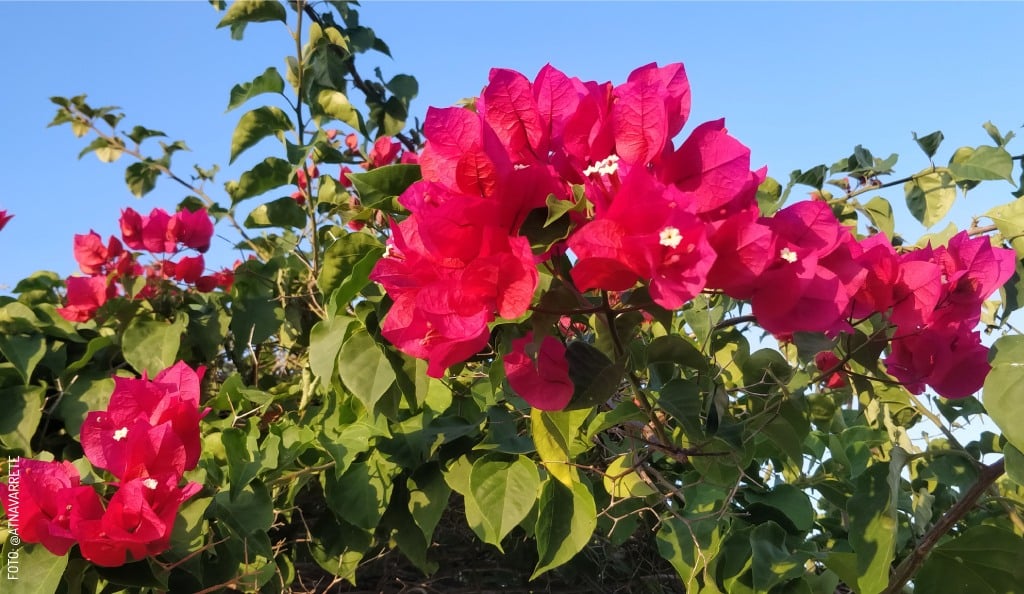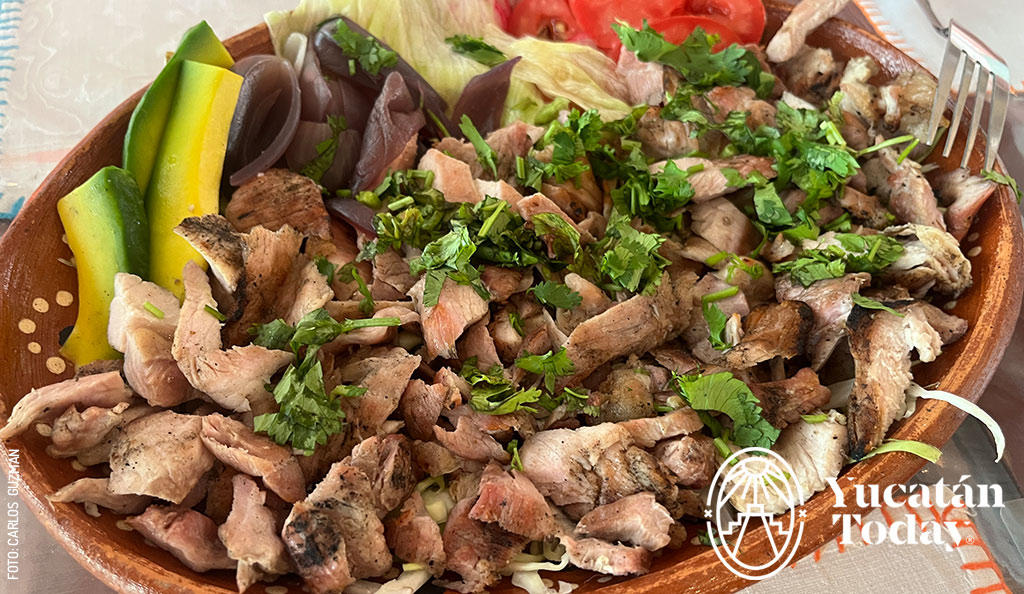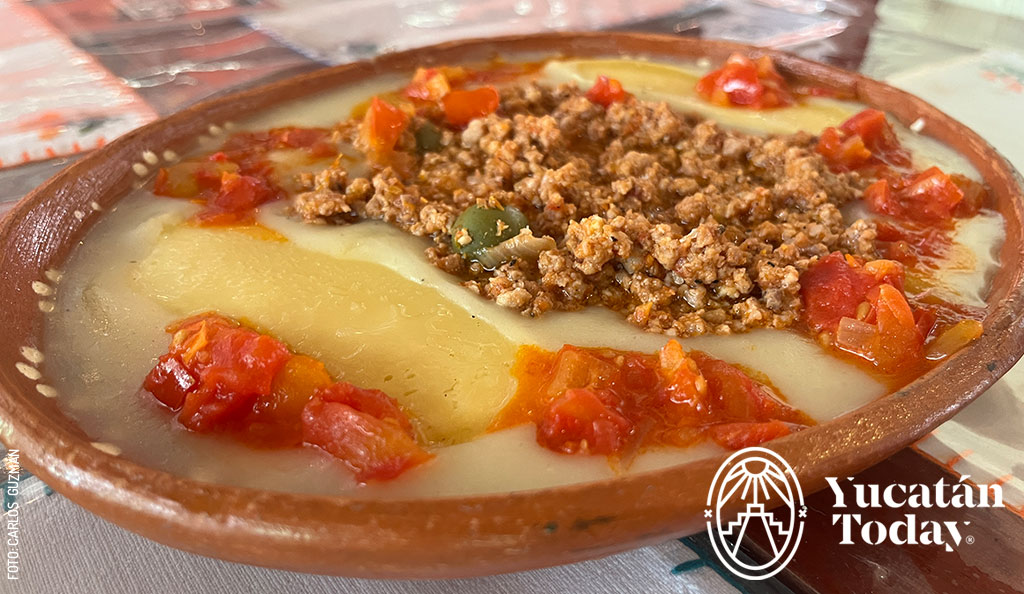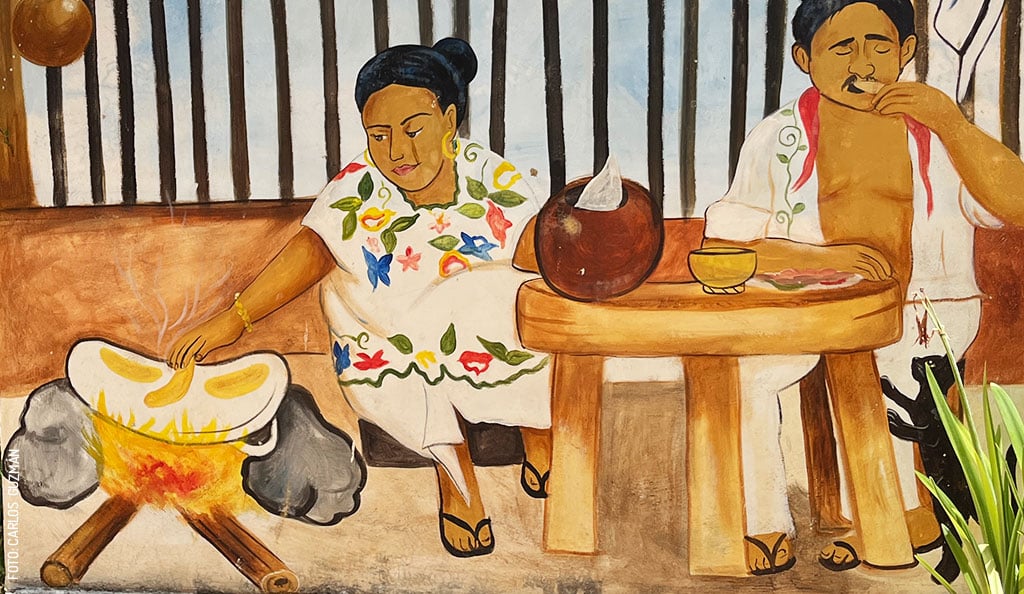
Memory Preserved in Flavor: Yucatán’s Traditional Cooks
There’s something deeply special about food: it’s intimately tied to memory and our ability to connect with the world around us. Sometimes, it’s one of the loveliest ways to understand the essence of a new place; other times, it’s a little taste of home when we’re far away. And, in some cases, it’s a memory that brings us closer to those who are no longer with us.
In any of its forms, food is one of life’s greatest pleasures. For many, the magic lies in delighting the palate with an explosion of flavors that tell a story without using words. For others, the real magic begins much earlier, in the art of preparing it; in their hands, cooking becomes an act of love, of heritage, and resistance. Not everyone is born with that sacred gift. But fortunately, life gives us encounters with people who do have it—and who, with generosity and heart, share their art with us, mere mortals.
Doña Martha Pat Cetina: A living legacy at K’óoben
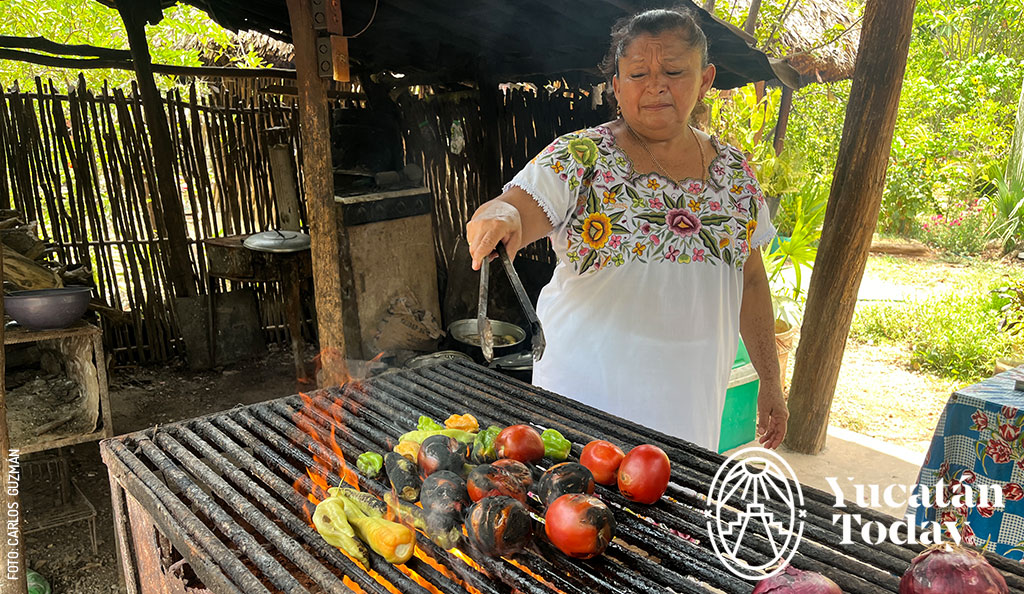
In Yucatán, there are people—women, especially—with the power to turn ingredients into memories that stay in the heart and mind, living echoes of ancestral wisdom. One of them is Doña Martha Pat Cetina, a traditional cook who leads K’óoben, a kitchen located in the heart of the Magical Town of Maní, which proudly honors the flavors of Yucatecan recipes.
Like many traditional cooks in the region, Doña Martha moves with the confidence of someone who has learned by doing. She didn’t study gastronomy or attend culinary school, but every recipe she prepares carries knowledge passed down through generations—knowledge not written in books, but stored in memory as part of her cultural heritage, and shared at the table.
The birth of K’óoben: A new beginning
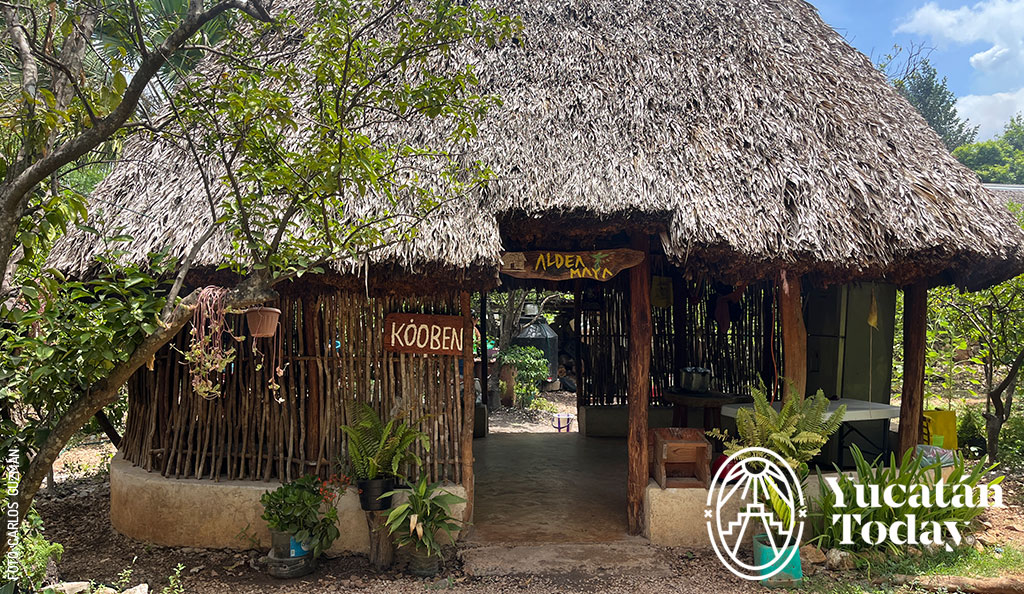
Her journey in the kitchen began after the pandemic. With her small store closed and her children grown, Doña Martha found in cooking a new way to start over. First came the breakfasts; then foreign visitors, charmed by her flavors, encouraged her to open a traditional kitchen. That’s how K’óoben was born: a family-run space where ancestral flavors are preserved through handmade broths and tortillas.
In this beautiful setting, surrounded by lush vegetation and perfect spots to capture memories of your visit to Maní, you’ll quickly realize that K’óoben is much more than a restaurant: it’s a living kitchen. Here, everyone plays an important role, and every task is part of a chain that keeps Yucatán’s culinary traditions alive.
Daily life in a traditional kitchen
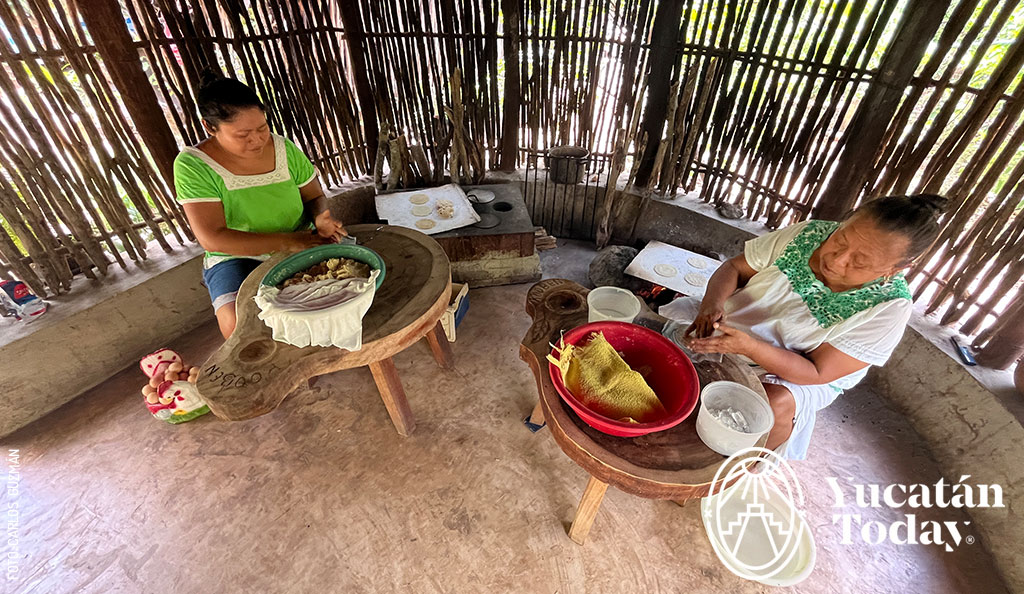
Mornings at K’óoben start early. Doña Martha coordinates orders and checks that everything is running smoothly. By 9 am, the kitchen is already bustling. Some women wash the nixtamal (corn that’s cooked in an alkaline solution, and then washed and hulled) to get it ready for the day’s tortillas; others, like Doña Deysi, prepare broths like escabeche or sopa de lima.
There are women, like Doña Felipa, who are exclusively dedicated to handmaking tortillas; others prepare huevos encamisados, a dish perhaps less famous than other Yucatecan specialties but just as delicious. At the bar, someone juices local fruits to make aguas frescas, while around 11 am, Doña Martha lights the grill to cook poc chuc, Maní’s signature dish, and readies the underground oven where cochinita pibil is slow-cooked, with the scent of charcoal and bitter orange filling the air.
In the kitchen, Maya is spoken, local ingredients are used (many grown right on the property), and guests are welcomed with the warmth of a home opening its doors.
Saturdays and Sundays are the busiest days. Up to 18 people work simultaneously in the kitchen, bar, service, and cleaning. The dining area, made up of palapas, fills with families, travelers, and locals seeking authentic flavors and a friendly atmosphere. Everything is organized, but never rigid. What exists is a sort of everyday harmony—a shared know-how that speaks softly but leaves a lasting impression.
An act of love and resistance
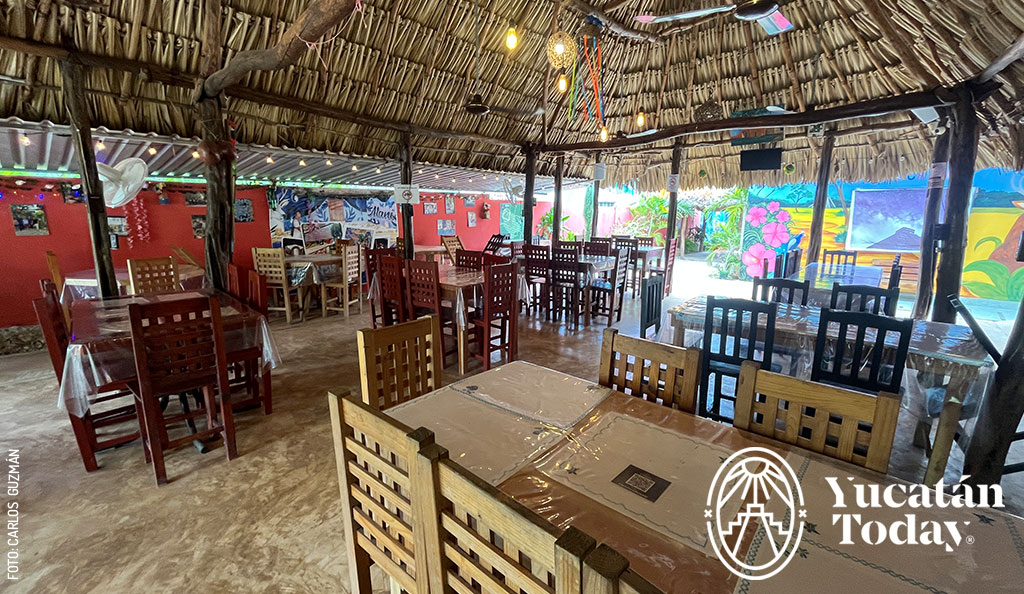
For Doña Martha, being a traditional cook is both an act of love and of resistance. It’s about rescuing recipes that are slowly being forgotten, like huevos encamisados, dzotobichay, or relleno blanco. “These are dishes our grandparents used to make when they didn’t have many options,” she says. That’s how she learned, by watching, asking, making mistakes…and now, by teaching. In addition to cooking, she offers workshops where she shares her knowledge with visitors. The crowd-favorite: cochinita pibil. The workshop lasts two to three hours and is a hands-on way to connect with Yucatán’s history and flavors.
An inspiration for Maní and beyond
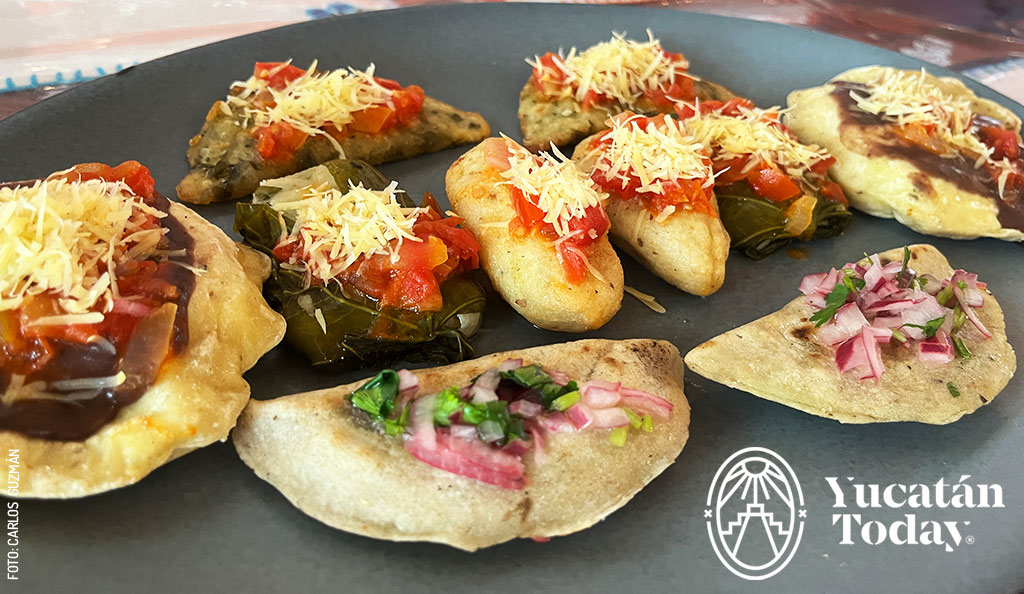
Speaking about the importance of her work, Doña Martha says she feels proud to be part of a growing movement. For many years, traditional cooks went unnoticed, but now their work is beginning to be recognized and valued. And while fear still lingers, especially among women looking to start their own ventures, many stories of perseverance are being written around pots and fires.
Maní is home to many women determined to move forward, and Doña Martha knows it well— her work inspires those around her. Although her favorite dish to prepare is queso relleno, the true secret ingredient in all her food is her attitude: a blend of humility, pride, and conviction.
A message for the future
Her dream is simple but important: that more people get to know, value, and respect traditional Yucatecan cuisine. “The flavor isn’t the same. A chef might study it, but we’ve lived it since we were little. It’s in our blood.”
Before we said goodbye, she left us with some advice: “Practice, cook, don’t let our traditions fade. It’s something to be proud of. It’s our roots.”
We thank Doña Martha Pat Cetina for sharing her time with us and, of course, for spoiling us with such delicious food. If you want to experience K’óoben firsthand and enjoy its flavors, or book a cooking workshop, don’t hesitate to visit Maní. They’re open every day from 12 pm to 6 pm.
K’óoben, Cocina Tradicional
Calle 21 x 26 y 28, Maní, Yucatán
Tel. 999 330 7120
knulpat@gmail.com
FB: Cocina Tradicional de Maní
Every day, 12 to 6 pm
Other traditional kitchens
Traditional kitchens are places where traditional cooks, who have learned from watching their elders, continue to prepare traditional dishes using traditional methods and ingredients—many of them, in addition to serving the food, also offer workshops so you can watch (or join in!) the preparations.
Ya’axche
- Halachó, Yucatán
- Google maps: Yaaxche Centro Etnogastronómico /Quinta Santa Cruz
- Alberto Suárez 997 151 0862
- IG: y.aaxche
Aldea X’Batun
- Valladolid, Yucatán
- Google maps: ALDEA XBATUN
- José Cen 985 852 6555
- www.aldeaxbatun.com
- IG: aldeaxbatun
La Chozita Xa’ Anil Nah
- Santa Elena, Yucatán
- Tel. 997 133 5768
Yaxunah
- WhatsApp. 985 114 0808
- FB: Parador Turístico Yaxunah
Xocen
- Xocén Birding Trail
- Tel. 985 211 7068
- IG: xocenbirdingtrail
- FB: Xocen Birding Trail

Author: Sara Alba
Panamanian with a Mexican accent since 2005. Editorial Assistant, a walking jukebox, and always lurking on social media, in the constant search of hidden gems to visit and share.
In love with Yucatán? Get the best of Yucatán Today in your email.
Don't miss our best articles and the monthly digital edition before anyone else.
Related articles
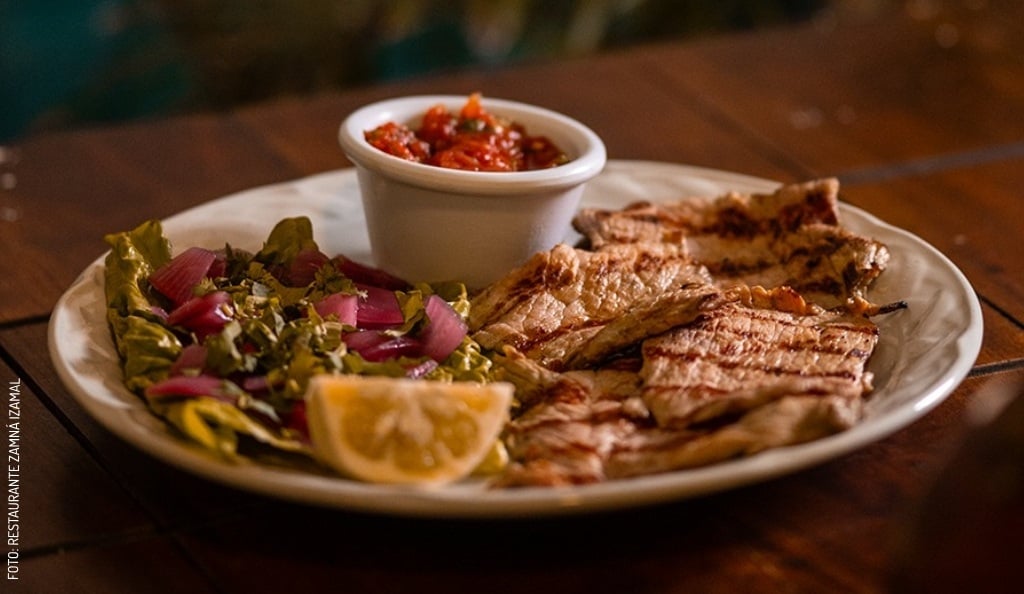
Yucatán's Gastronomic Stops: Dishes Worth the Trip
Travel through Yucatán by its flavors. Discover iconic dishes from each region: poc chuc in Maní, huevos motuleños, and more. A journey worth taking!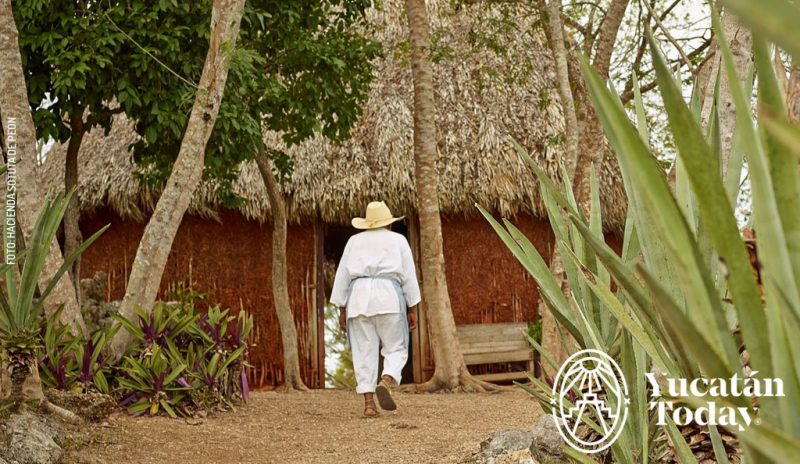
The Maya of Yucatan, a living culture
Discover the vibrant culture of the Yucatán Mayas today, from traditional ceremonies to modern adaptations.